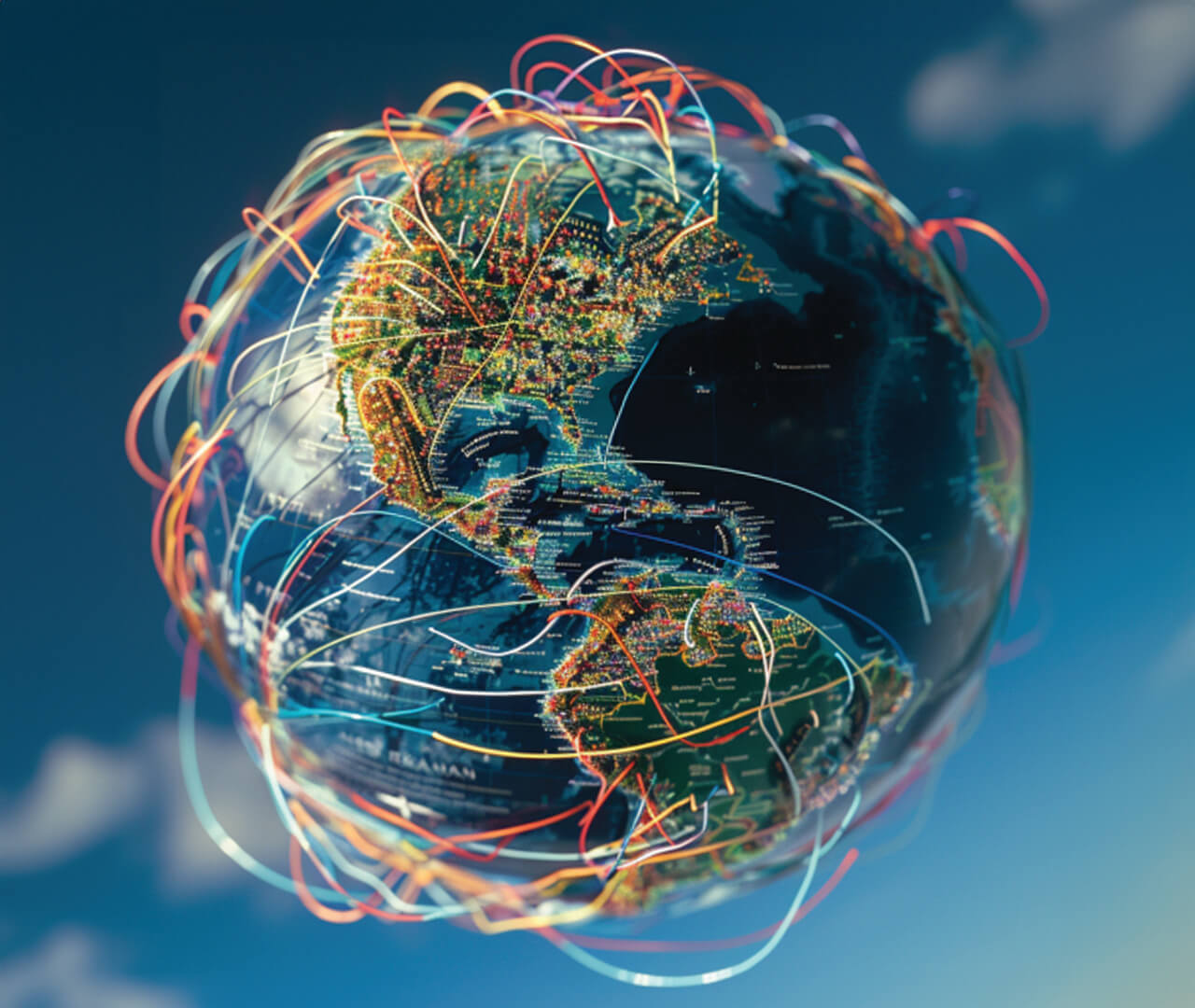The days of travel PR being just about press releases and media pitches are behind us. In an era when machine learning and AI are redefining boundaries across industries, the travel and hospitality sectors stand out for their rapid adaptation and integration of these technologies.
This evolution isn’t just a trend; it’s a transformation that’s revolutionizing customer service and operational efficiency. As PR professionals, it’s crucial to explore how harnessing AI can drive unprecedented business results, especially in such a dynamic market. By leveraging AI to predict traveler preferences, shape brand narratives and anticipate future needs, we can position companies as forward-thinking leaders in their respective fields. This proactive approach caters to the interests of media and consumers, setting the stage for introducing new, on-trend concepts and offerings that keep the brands we represent relevant and top of mind.
AI-driven insights and data utilization
Perhaps AI’s most valuable attribute is its ability to analyze extensive consumer data and instantly provide actionable insights. Travel brands increasingly leverage AI to understand their customers on a deeper level, tailoring their offerings to meet the specific needs and desires of different traveler segments. This data-driven personalization goes beyond basic demographics and considers behavioral patterns, purchase histories and sentiment analysis derived from social media and other digital footprints. These insights open new avenues for storytelling for PR professionals. By understanding what resonates with audiences, PR teams can craft compelling narratives that are both relevant and highly engaging. For instance, AI can identify trending destinations or preferred types of travel experiences among specific demographics, such as all-inclusive resorts or adventure travel. This enables PR campaigns to highlight these aspects, attracting more coverage and interest.
Operational efficiency is a significant benefit of AI in the travel sector. From automating bookings and managing customer inquiries through chatbots to optimizing logistics, AI frees up human resources to focus on more complex and creative tasks. Similar efficiencies are mirrored in PR activities, where AI helps automate routine tasks, allowing professionals to devote more time to strategic planning, creative content development and personalized stakeholder engagement. PR teams can also respond more swiftly and effectively to emerging opportunities or crises, ensuring their clients maintain a proactive stance in the market. In an industry where stories are relevant for only a short time, enhancing efficiency can make the difference between getting our clients into the news or missing the moment.
Curation of customer-focused content
As previously mentioned, AI’s ability to analyze large data sets and enhance information curation enables companies to offer more personalized and targeted content and interactions. Every day, consumers indicate their preferences through online behaviors and brands can use AI to extract this information, tailoring offerings and communications to appeal directly to individual needs and interests. This push-pull dynamic creates a valuable feedback loop for PR. As consumers interact with the content, their responses and inquiries provide brands with deeper insights, which can be used to refine future communications. For instance, if travel consumers show increased interest in sustainable practices, PR can leverage this data to craft stories that highlight their clients’ sustainability initiatives, effectively predicting and meeting the evolving interests of their audience.
Personalizing the pitch
PR professionals can also leverage AI-driven insights to develop pitches that resonate more deeply with journalists and media outlets. By analyzing the preferences and past behaviors of media contacts—such as the types of stories they cover or the angles they prefer—PR teams can tailor their pitches to align closely with journalists’ interests. AI’s analysis of published content and social media interactions of journalists can also play a pivotal role in shaping itineraries for FAM trips. By curating activities and experiences that closely match the preferences of attending media, PR professionals can enhance the overall impact and increase the potential for earned coverage following a press trip.
Credibility in the Age of AI
As AI technologies advance, they increasingly rely on credible sources to inform their algorithms. This trend underscores the necessity for travel brands to maintain a robust online presence with high-quality, authoritative content. AI systems used by consumers for researching trips or making bookings tend to pull information from well-regarded media sites and official brand platforms. Therefore, it’s crucial for PR professionals to secure media placements and enhance the brand’s owned channels with accessible content that resonates with target audiences. Owned content should be crafted in a language and tone that speaks directly to potential travelers, emphasizing the brand’s unique selling points and values. AI’s capability to analyze extensive data can also help identify the most effective messaging angles and content types, thereby optimizing the brand’s communications strategy. This ensures that the brand remains credible, relevant and top-of-mind in the competitive travel industry.
Strategic content creation and distribution
AI’s influence extends to content creation, where it assists in generating comprehensive, SEO-friendly articles and social media posts that engage users and boost online visibility. While AI cannot replace the human touch and an agency’s unique understanding of a brand, PR professionals can leverage this technology to ensure content aligns with brand narratives through customized GPTs. These GPTs should utilize brand guidelines, including mission, vision, tone and sentiment, along with content from social channels and key executive voices. AI can also optimize content distribution by identifying the best times to publish and promote materials across different channels to maximize reach and engagement. This strategic distribution ensures that key messages cut through the noise and reach consumers effectively, enhancing the overall impact of the brand’s communications.
Integrating AI in travel PR is a transformational shift that redefines how professionals engage with clients and the media. By leveraging AI, teams can achieve greater personalization, efficiency and strategic depth in their campaigns. As we put this technology into practice, staying ahead means not only embracing AI as a tool but making it a central element of our strategic vision. This proactive approach will ensure we remain at the forefront of innovation, driving success and achieving impactful results for brands and companies in the ever-evolving travel industry.




